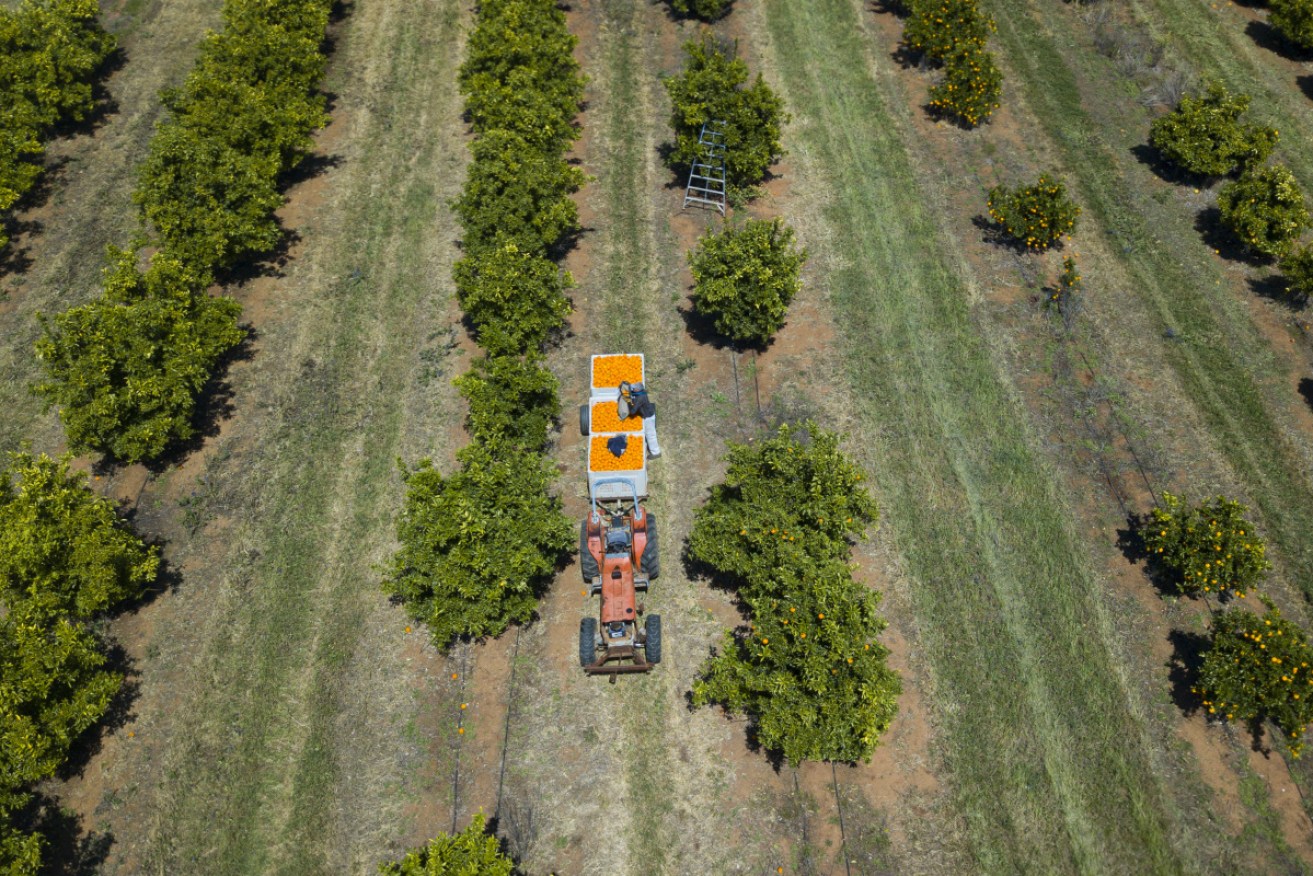Chemicals are ‘overwhelming’ food chains

PFAS chemicals have been found in biosolids - leftovers from treatment plants reused as fertiliser. Photo: AAP
Food chains are overwhelmed by the 350,000 chemicals being used around the world, a major contamination conference in Adelaide has heard.
More than 500 experts from 28 countries have gathered to discuss the world’s dirtiest problems – from air and water pollution to microplastics and how climate change will affect contaminants already in the environment.
The International Cleanup Conference is particularly focused on PFAS – a vast family of thousands of chemicals that don’t readily break down and build up in plants, animals and humans.
Experts say all Australians already have PFAS in their bodies due to their common use in everyday items – from food packaging and non-stick cookware to cosmetics and carpet.
PFAS is also routinely detected in food in Australia, but authorities say it’s at acceptable levels not considered a risk to human health.
Tony Circelli, the chief executive of South Australia’s Environment Protection Authority, told delegates PFAS will be around for hundreds of years.
He said PFAS are among the 350,000 chemicals currently in circulation that will impact food supplies into the distant future.
“We really don’t know the impacts of these chemicals individually, let alone when they combine with each other … this is not going away any time soon,” he said.
“We’ve got nanoparticles, we’ve got microplastics – our food chains are getting overwhelmed by all this.
“We’re getting persistent chemicals. We’ve got so much at this conference around PFAS – chemicals that are going to be around for hundreds and hundreds of years.”
PFAS is shorthand for per- and poly-fluoroalkyl substances and there are thousands of them. Estimates range from 4000 to 8000.
A recent study found they are literally everywhere, including in rainwater and snow in the most remote parts of the world.
The Australian government is about to release the third draft of its national plan to manage PFAS. Experts hope it will substantially improve the existing framework of state-based management in favour of a stronger national approach.
The issue of PFAS in biosolids – leftovers from sewage treatment plants reused as fertiliser on Australia’s farmlands – is of particular concern.
Last year, more than 70 per cent of the 349,000 tonnes of dried solids was disposed of that way.
University of NSW professor Stuart Khan has warned about what’s on the line without consistent guidelines for biosolids.
“If we don’t sort out our risk management and make sure we practise safe handling of biosolids, particularly where it’s being reused to grow food crops, we might run into difficulties in the future,” he said.
PFAS are known to cause harm to some animals. The jury is still out on human health effects but many nations warn of increased cancer risks and advocate limiting exposure to chemicals in use since the 1940s.
The EU’s environment agency says PFAS can lead to health problems such as liver damage, thyroid disease, obesity, fertility issues and cancer, while the US says certain PFAS pose human health risks.
Australia points to “fairly consistent reports of an association with several health effects” while noting they are “generally small and within normal ranges for the whole population”.
The conference continues until Thursday.
– AAP








